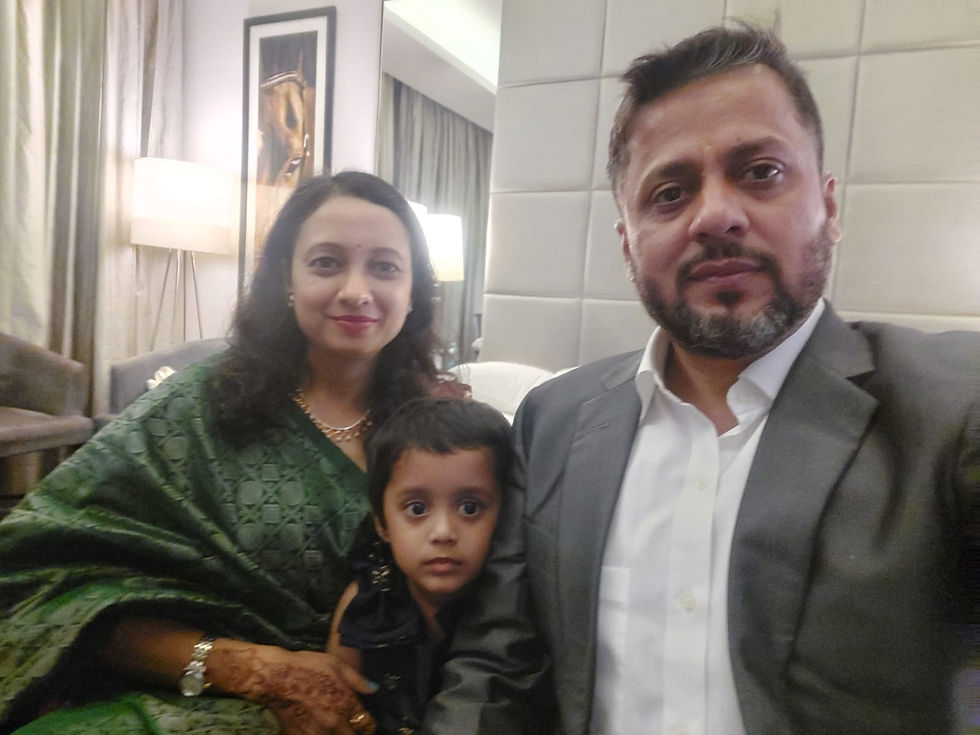7 Questions on Leadership with Abhishek Singh
- Jonno White
- Dec 18, 2023
- 4 min read

Name: Abhishek Singh
Title: Co-founder and CEO
Organisation: SecureDApp
As the co-founder and CEO of SecureDApp, I specialize in providing top-notch blockchain security solutions for companies operating in the Web 3.0 space. With my team of experienced professionals and cutting-edge tools, I conduct comprehensive smart contract audits to identify vulnerabilities and enhance the overall security of your blockchain network. My mission is to help you rest assured that your blockchain ecosystem is secure and future-proof.

Thank you to the 2,000 leaders who’ve generously done the 7 Questions on Leadership!
I hope Abhishek's answers will encourage you in your leadership journey. Enjoy!
Cheers,
Jonno White
1. What have you found most challenging as a leader?
One of the most difficult aspects of leadership is having to let go of high-performing team members due to external factors, such as funding winters, changes in business orientations or even new product lines etc. However, sometimes the most challenging aspect of leadership to me has been meeting the aspirations of individuals while also ensuring that organizational objectives are met on correct timelines. This is because individuals have different motivations, goals, and needs. Some individuals may be more focused on their own career development, while others may be more focused on the team's success. It is important to balance these competing needs in order to create a high-performing team.
2. How did you become a leader? Can you please briefly tell the story?
have had to make difficult decisions in my career, even when I knew that the company was wrong. One such decision was when I was heading media planning and buying for one of my previous companies. We had booked premium advertising slots on leading newspapers for an upcoming sale, months in advance for all of India. Just 12 hours before the ad was to be published, we were asked to pull it or hold it. I had to make multiple calls to stakeholders to explain why we needed to hold the ad, and then I learned that four people would lose their jobs if we did so.
I knew that my management was not going to change their minds, so I had to make a decision. I decided to go ahead with the ad, even though it meant that I might lose my job. I couldn't bear the thought of four people losing their jobs because of a decision that our company made.
This decision taught me that it is important to stand up for what you believe in, even when it is difficult. It also taught me that it is important to consider the impact of your decisions on others.
3. How do you structure your work days from waking up to going to sleep?
I start my day by writing down everything that I need to do. Then, I prioritize the tasks and focus on the most important ones first. I also try to look at the work from a departmental perspective, such as marketing, sales, HR, and operations. I identify the most important issues (not necessarily the most urgent ones) and talk to the appropriate department heads to see how they are approaching them. I also make time to drop off and pick up my daughter from school, and I plan my day accordingly. I keep all of my team meetings in the second half of the day.
4. What's a recent leadership lesson you've learned for the first time or been reminded of?
I have been reminded that it is important to set clear targets and deadlines and to start working towards them immediately. This helps us to stay on track and to ensure that we are moving in the right direction. It also helps to motivate and incentivize our team members. Keeping things open-ended is not beneficial for anyone, especially not for the organization.
5. What's one book that has had a profound impact on your leadership so far? Can you please briefly tell the story of how that book impacted your leadership?
Working Backwards: Insights, Stories, and Secrets from Inside Amazon by Colin Bryar and Bill Carr. Working backwards has helped me to broaden my perspective on the importance of planning and working backwards to achieve designed organizational goals. This is a valuable lesson, and it is one that many organizations can benefit from.
By working backwards from our goals, we can identify the steps that we need to take to achieve them. This can help us to stay on track and to avoid wasting time and resources on projects that are not aligned with our goals.
6. If you could only give one piece of advice to a young leader, what would you say to them?
Young leaders, be fearless yet humble and dive into every assignment with fearless curiosity and unwavering confidence.
7. What is one meaningful story that comes to mind from your time as a leader, so far?
Forge your own path, learn from your mistakes, and embrace the possibility of failure as a natural part of growth. People and processes should never let you fail, if you have to fail, fail because of your mistakes. Never let others control your destiny.



Comments